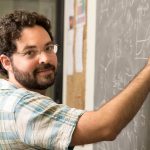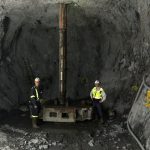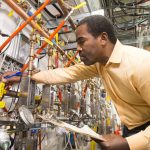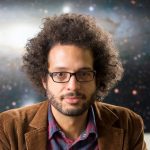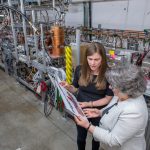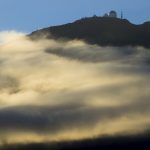Top news
The annual Universities Research Association Thesis Award recognizes outstanding work for a thesis conducted at or in collaboration with Fermilab. Zhang’s winning Ph.D. dissertation included insights into both physics searches and equipment upgrades at the Large Hadron Collider’s CMS detector. Fermilab serves as the U.S. hub for CMS.
A new fellowship created by Fermi National Accelerator Laboratory will provide engineering students in underrepresented groups in STEM immersive learning experiences on world-leading particle accelerator projects at Fermilab, starting with the new PIP-II accelerator that will power the world’s most intense neutrino beam. Applications for 2022 open September 2021.
What if human analysis, combined with machine learning, could advance the study of the universe? The U.S. Department of Energy awarded Fermilab scientist Brian Nord a $2.5 million Early Career Research Award to explore that possibility. Nord has envisioned a new hybrid data-analysis method to undertake the project. It integrates the strengths of artificial intelligence and interpretations of statistics in ways that could potentially advance the studies of cosmology.
The National Contract Management Association has awarded L.L. “Po” Collins, Fermilab’s director of special projects and former acquisition officer, its Outstanding Fellow Award. She received the award for over 30 years of contributions, achievements and ethics in her field.
This spring testing wrapped up at the PIP-II Injector Test Facility, or PIP2IT. The successful outcome paves the way for the construction of PIP-II, a new particle accelerator that will power record-breaking neutrino beams and drive a broad physics research program at Fermilab for the next 50 years.

